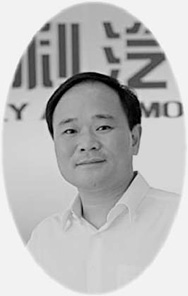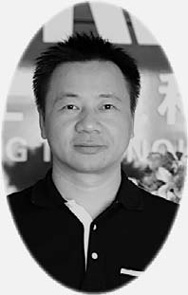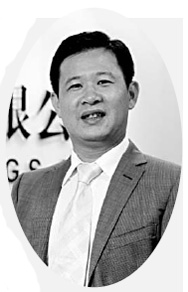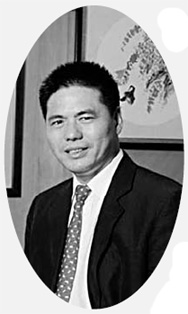Top Biz News
2009 'Entrepreneur of the Year' awards
(China Daily)
Updated: 2009-11-03 08:25
Editor's note: The Entrepreneur of the Year (EOY) Awards is a program created by Ernst & Young to identify, salute and reward outstanding Chinese entrepreneurs who have made significant contributions to the economic growth and prosperity of China.
Ernst & Young announced the winners for 2009 on October 30, including those in consumer products, real estate, service, industry, technology and energy.
China Daily is the exclusive English-language media partner of this program. We are pleased to publish interviews with the 12 winners, as well as presenting their profiles:

Li Shufu, chairman of Geely Automobile Holdings Ltd, Automotive Category Winner
Li Shufu founded Geely in 1986 as a maker of refrigerator parts, and subsequently moved into decorating materials, motorcycles and then cars. Following his huge success in the motorcycle business in the mid 1990s, Li's ambition was to break into the automotive sector. Li managed to start China's first privately owned automotive company in 1998, a sector that was then dominated by State-owned firms.
Geely is now China's seventh largest carmaker, manufacturing popular and budget cars. Li succeeded in the car industry despite the capital-intensive nature of the business, and without having to resort to importing technology and capital through joint ventures, as State-owned firms had done. Geely is now looking to shift up another gear to become a global carmaker. It has bought a stake in the company behind the iconic London taxi-cab, and it recently bought an Australian company that is one of the few independent automotive transmission makers in the world.
Li has donated over 1 billion yuan ($146.5 million), including money for the Sichuan earthquake relief effort, education for the poor, universities, research institutes and others. Li ranked 14th among the top philanthropists in China in 2009.
Q: Can you share with us the most valuable experience you gained in starting your business?
A: My most precious experience is that one should always stand on solid ground and go to the front line to learn what the truth is. You should also be good at drawing on the lessons of the past to make progress.
Q: Which achievement in Geely's history has made you feel most proud of your company?
A: There are many. First, I feel proud of our achievement in personnel training, which we have always given priority to. We have successfully attracted skilled staff from both at home and abroad to come to Geely and create a training system to help with further staff development.
Secondly, after we gathered this staff, we fostered a creative culture, which effectively stokes the passion of our people in terms of innovation.
Also, we regularly study market trends, as well as the changes taking place in our country and around the world, in order to adjust the future plans of our company. For example, we were initially in the refrigerator business, at a time when household appliance had just entered the Chinese market. Then we switched to building materials, as Chinese consumers became more well-off and many families began to spend money on their homes. After that, we started to make motorcycles and automobiles, gradually entering larger industries and moving on from smaller ones.
In May 2007, we implemented a strategic transformation, moving from price competition to competing in terms of brand, quality, technology, service and corporate responsibility. A fundamental change has taken place in the company's way of doing business. We want to lead all our management and staff to learn to jointly compete in a new way.
Wu Changjiang, president of NVC Lighting Holding Ltd. Industrial Products Category Winner

Wu Changjiang was the driving force behind NVC Lighting Holding, which is among China's largest and best-known lighting products providers. The company manufactures a variety of energy-saving lighting solutions for commercial, office, outdoor and residential use. The company has enjoyed impressive growth since it was formed in 1998, with a compound annual growth rate of 41 percent in term of sales.
The company manufactures and distributes through its retail channels. Its formidable sales network includes 35 centers, 1,500 dealers and 2,000 exclusive agents. Its brand has achieved a high level of recognition in China. NVC was ranked second in the "China Venture 50" in July 2009 by Zero2IPO, a data provider for the venture capital and private equity industries.
Today, NVC has four manufacturing bases with 9,000 employees and a production capacity of over 100 million units per month. In the community, Wu started a charity called Bright Road in June 2009. This has seen the company donate LED lamps to four schools in poverty-stricken areas in western China, enabling 1,600 students to have well-lit rooms in which to learn.
Q: What is the most precious experience you gained during the startup period?
A: First, I've learnt how to lead a team and get along with my dealers and customers. You need a team to accomplish anything and it's a challenge to stimulate your team to focus on a certain task. Secondly, I've learnt to think and solve problems in a systematic manner, either from an all-around perspective or from a specific angle.
Q: What are the events you feel most proud of?
A: Over the last few years, we have made several decisions that were doubted by outsiders at the time, but ultimately proved to be correct and were recognized as such by our competitors. When we first introduced the exclusive shop model into our lighting business, for instance, a lot of people thought it was untenable. Most stores were selling many different brands at that time, as the products made by just one company were very limited in range. We asked our dealers to sell only NVC products, now many companies have adopted this strategy.
Q: What is your view about the current financial crisis?
A: The financial crisis proved a wake-up call for Chinese businesses, especially for those in the manufacturing industry. They really need to change the old way of thinking and operating businesses. Economic crises are periodical, we have to learn lessons from them instead of focusing on the immediate problems. A number of export-oriented enterprises have no independent branding, no core technology and no stable sales channels. It's like putting your fate in other people's hands, which means you will be easily affected when foreign companies have problems.
Ding Shuipo, chairman and chief executive officer of Xtep International Holdings Ltd. Retail & Consumer Products Category Winner

Ding Shuipo set up Xtep in 2002. Xtep has become a successful homegrown sportswear company by positioning itself as a hip and vibrant sportswear brand targeted at the youth market. Xtep currently has a 4.9 percent market share of China's branded sportswear market, making it one of the largest domestic sportswear brands in China.
Xtep has differentiated itself by creating a brand that combines its hip urban image with sporting excellence. The company has been successful at marketing its brand by working with young entertainers, including appointing pop singers as ambassadors for its products. It has also associated its brand with sporting excellence through a series of sports sponsorships.
The company now has multiple brands, and boasts a network of 5,500 authorized retail outlets nationwide, with a total of some 6,400 employees. It listed in Hong Kong in 2008. In 2008, its revenue was 2.8 billion yuan, a 110 percent increase from 2007. Ding is active in the community and his public roles include acting as a member of the 10th Quanzhou City Fujian Provincial Committee of the Chinese People's Political Consultative Conference.
Q: Can you share some insights that you have gained in operating a business?
A: I would like to attribute Xtep's success mostly to the opportunities brought about by the reform of China. Of course it is important for a company to seize those opportunities.
Throughout the 1980s, China was a seller's market and our company enjoyed rapid growth at that time. In the 1990s, the Chinese government encouraged the development of export-oriented businesses. We then took the opportunity to sell our products to more than 40 countries. After the millennium, with the rising living standards of Chinese people, we successfully switched back to the domestic market. Throughout the whole process, I am most proud of two achievements - creating our own brand and being listed on the Hong Kong bourse.
Q: What is your advice to those who want to start up their own businesses?
A: The economic competition is much fiercer now than before, which has brought greater challenges to young entrepreneurs. However, if an entrepreneur can work hard and focus whole-heartedly on certain undertakings, he or she will finally reach their goal.
Q: What do you do to ensure your company remains innovative?
A: Innovation is very important for a successful business. Xtep for example, was the first to use entertainment as a means of marketing in the sporting goods industry. Recently, we invited the winners from the "Happy Girls" show to be our image ambassadors.
Q: What are your hopes for your company?
A: We have always aimed to be the top fashion sports brand in the world, as well as a national brand that represents the Chinese sporting goods industry.

Jiang Xipei, board chairman and chief executive officer of Far East Holding Group Co Ltd. Industrial Products Category Winner
Jiang started Far East Holding in 1990. The company makes cables for use in the electric, infrastructure and grid transmission sectors. It has ranked as the No.1 cable manufacturer in China for the past 11 consecutive years, with annual sales of 7 billion yuan in 2008. In addition to diversifying into pharmaceuticals and real estate, he is also a successful venture capitalist, helping promising young local entrepreneurs list domestically and internationally.
Far East has been supporting the disabled community from the very outset, employing two disabled workers when the company launched. The company currently employs 1,500 disabled people, representing 27 percent of its total workforce. In 2007, he donated 83 million yuan to set up the Far East Charitable Foundation, an organization aiming to provide a special career-training fund for the disabled. The group publishes a Corporate Social Responsibility report, and he is also engaged with a number of other charities. He has won various awards for his work throughout China.
Jiang was a representative to the 16th CPC Congress of the National Congress in 2002. He is also the vice-chairman of Global Alliance of Small and Medium Enterprises.
Q: How do you define the entrepreneurial spirit?
A: For me, it means honesty, cooperation, devotion, responsibility and persistence.
A: First, it is important to respect the rules. Also, a company should have a long-term plan and strategy, as well as a perfect management system and leading-edge technology. You also need a good team. A company can go much further if the management is able to oversee the situation and implement innovation.
Q: What has career success brought to you? What do you think one has to endure to be an outstanding entrepreneur?
A: Actually I don't think you need to have great dreams or ambitions at the very beginning, but once you start doing business, you will find that you need to do many things. You work to realize your own value as well as to fulfill your obligations to society. I think people should do things that will benefit others, the country and the world. I would like to make an effort to help people when I am still young and have the resources. Even though I have to pay a lot, I am still willing to do that.
Q: What are your future plans?
A: It's been almost 20 years since the establishment of the company and we have achieved a lot. Yet we are just starting to build a world-class business. We hope that, over the next 10 years, we can take the lead in the global electric wire and cable market and in the domestic medical industry. We want our company to contribute still more to the society and be a well-respected enterprise.













